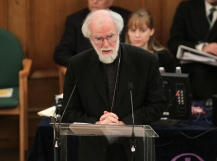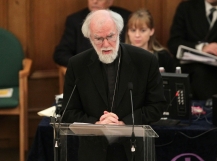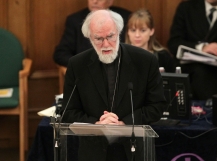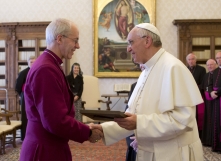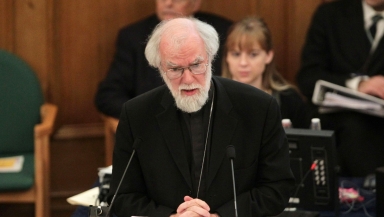
Former Archbishop of Canterbury Rowan Williams has written in defence of blasphemy in the New Statesman magazine.
In an issue devoted to the subject of censorship, Williams says blasphemy is not always an attack on faith, but involves testing beliefs and is often a valuable exercise.
He writes: "For most of human history – and for rather a lot of the world today – blasphemy is the cardinal case of saying the unsayable. What could be more transgressive than mocking or abusing the all-powerful creator of the universe? But what is interesting in the history of religions is that this isn't always about attacking or rejecting faith itself."
He also says that "If God is real, then presumably God can cope with anything we choose to throw at Him," adding: "If, worst of all, God is incompetent, sadistic or indifferent, the language of protest at least allows us to die with some integrity and dignity; we have – as Ajax and Job have obviously concluded – nothing to lose."

He says that blasphemy can express "faith of a sort" and that unless doubts and anger can be expressed freely, "the God you started with is not worth believing in". According to Williams, "If you are forbidden to voice the hard questions, this might suggest that faith survives only by never being challenged."
He instances the Psalms and the poems of George Herbert and Gerard Manley Hopkins as examples of how blasphemy "resists the conspiracy of silence about the agonising difficulties of belief, resists the stifling of a real and honest response to an unjust world".
Williams concludes: "The secularist needs to understand some of the internal critique that faith is always struggling with; and the believer needs to recognise that blasphemy isn't necessarily a matter for panic, let alone violence. It may even be a gateway into a larger and more durable commitment."










